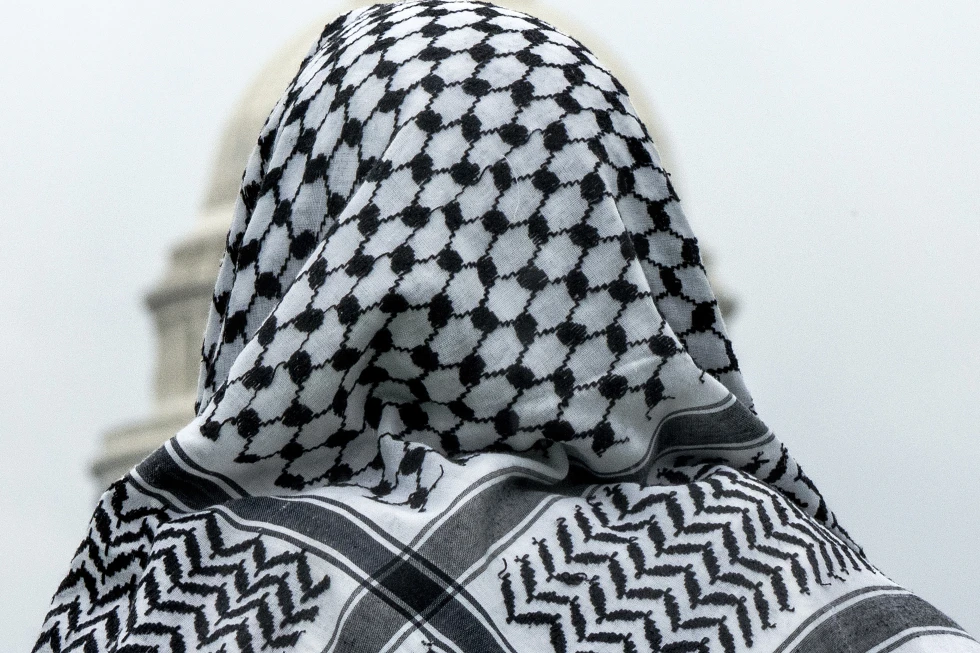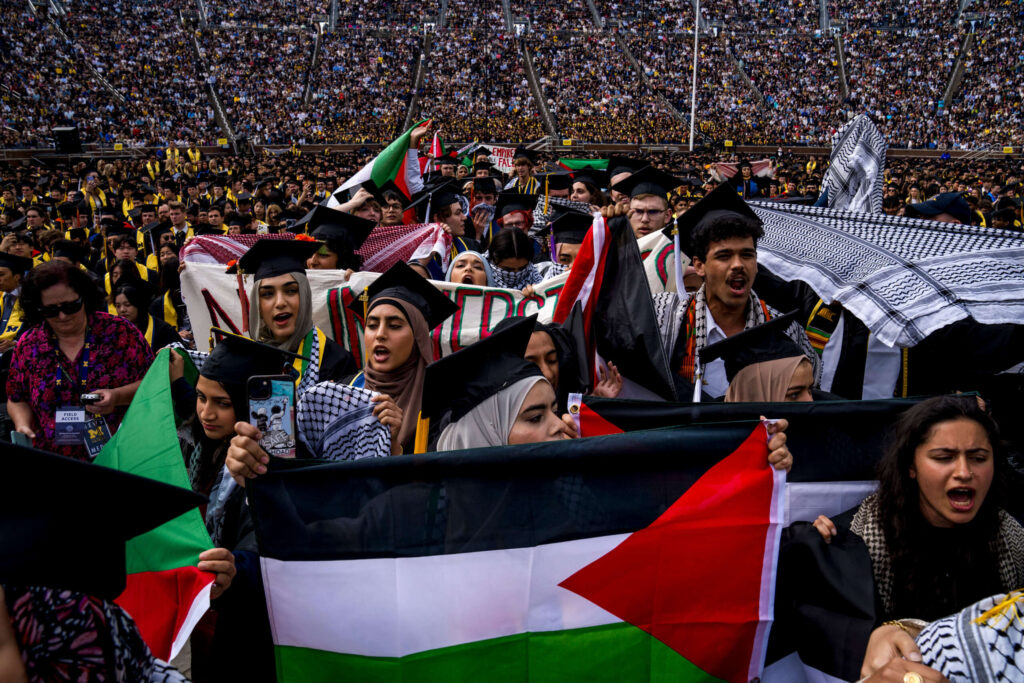In a stark illustration of the delicate balance between academic freedom and local laws, a student at New York University Abu Dhabi (NYUAD) was reportedly deported from the United Arab Emirates after shouting “Free Palestine” during his graduation ceremony in May. The incident underscores the complex political landscape in the UAE as it navigates its diplomatic ties with Israel while responding to the ongoing Israel-Hamas conflict.

Witnesses describe the student crossing the stage wearing a traditional Palestinian keffiyeh scarf and making the pro-Palestinian statement as he received his diploma. This act of protest came despite prior warnings from the university prohibiting the display of Palestinian flags on campus and restricting cultural attire at the commencement ceremony.
The reported deportation highlights the challenges faced by international academic institutions operating in countries with strict speech controls. NYU Abu Dhabi, while claiming “guaranteed academic authority” on campus, acknowledged that community members are not immune to local laws. The university emphasized its efforts to advise students about expectations and boundaries, particularly regarding graduation protocols.
This incident is not isolated, as students report a broader crackdown on activities related to the Israel-Hamas war. They describe restrictions on organizing vigils for Gaza casualties and fundraising efforts involving the bulk purchase of keffiyehs. The American Association of University Professors has raised concerns about the detention and interrogation of staff and students, particularly those from non-Western countries.

The situation at NYU Abu Dhabi reflects the broader tensions in the UAE, where the government is balancing its diplomatic recognition of Israel with sympathy for the Palestinian cause. While offering aid to Palestinians, the UAE has not seen the mass demonstrations that have occurred elsewhere in the Arab world, maintaining tight control over political expression.
This event adds to previous controversies surrounding NYU Abu Dhabi, including issues with migrant worker rights during campus construction and the denial of work visas to certain professors. It also highlights the challenges of maintaining Western academic ideals in a context where political parties are illegal and speech is heavily regulated.
As the Israel-Hamas conflict continues to impact the region, incidents like this graduation protest and its aftermath serve as a reminder of the ongoing struggle between free expression and political sensitivities in the UAE. The situation raises important questions about the role of international academic institutions in such environments and the limits of academic freedom in contexts where local laws may conflict with principles of open discourse.
AP



